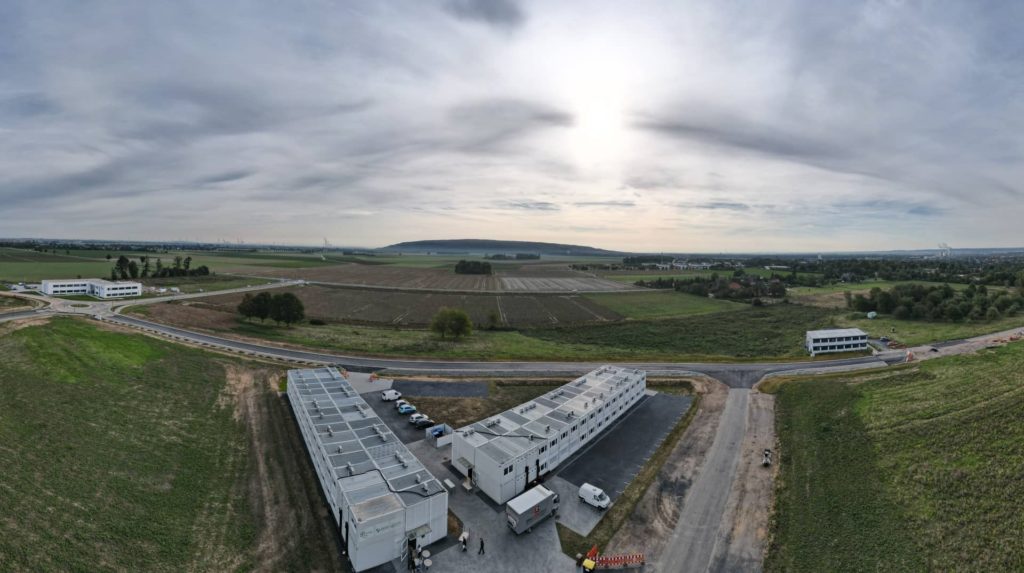The next important step for the creation of the Helmholtz Cluster for Sustainable and Infrastructure-Compatible Hydrogen Economy (HC-H2) has been taken: it is now certain that the new research building planned for Brainergy Park near Jülich by 2030 will receive funding. The Supervisory Board of the Zukunftsagentur Rheinisches Revier awarded the third star to the new research building project in its most recent meeting.
All projects in structural change in the Rhenish mining area must go through the three-stage qualification procedure if they are to be funded in accordance with the Structural Development Act (Strukturstärkungsgesetz). This means that Forschungszentrum Jülich, which forms the core of HC-H2 with its new Institute for Sustainable Hydrogen Economy (INW), can now submit funding applications for the new research building. Preliminary planning is expected to begin this year.
The new research building will be constructed by 2030 in Brainergy Park in the immediate vicinity of the current HC-H2 site on an area of almost 20,000 square meters. The NRW Ministry for Culture and Science (NRW-Ministerium für Kultur und Wissenschaft) is funding this important sub-project with € 90 million. A campus with 400 workplaces in office buildings, technical centers, and laboratories is planned. The campus is being built according to the guidelines of Brainergy Park using sustainable and innovative construction methods.
For INW and HC-H2, the new research building is paramount. Here, research on hydrogen infrastructure is to take place permanently; the resulting projects throughout the Rhenish mining area are to be coordinated from here. Until the new research building is finished, there will be several more construction projects for INW. In 2023, a technical center and laboratory modules will be built next to the current office containers in Brainergy Park. Further on, INW’s growth will make additional construction measures necessary.


